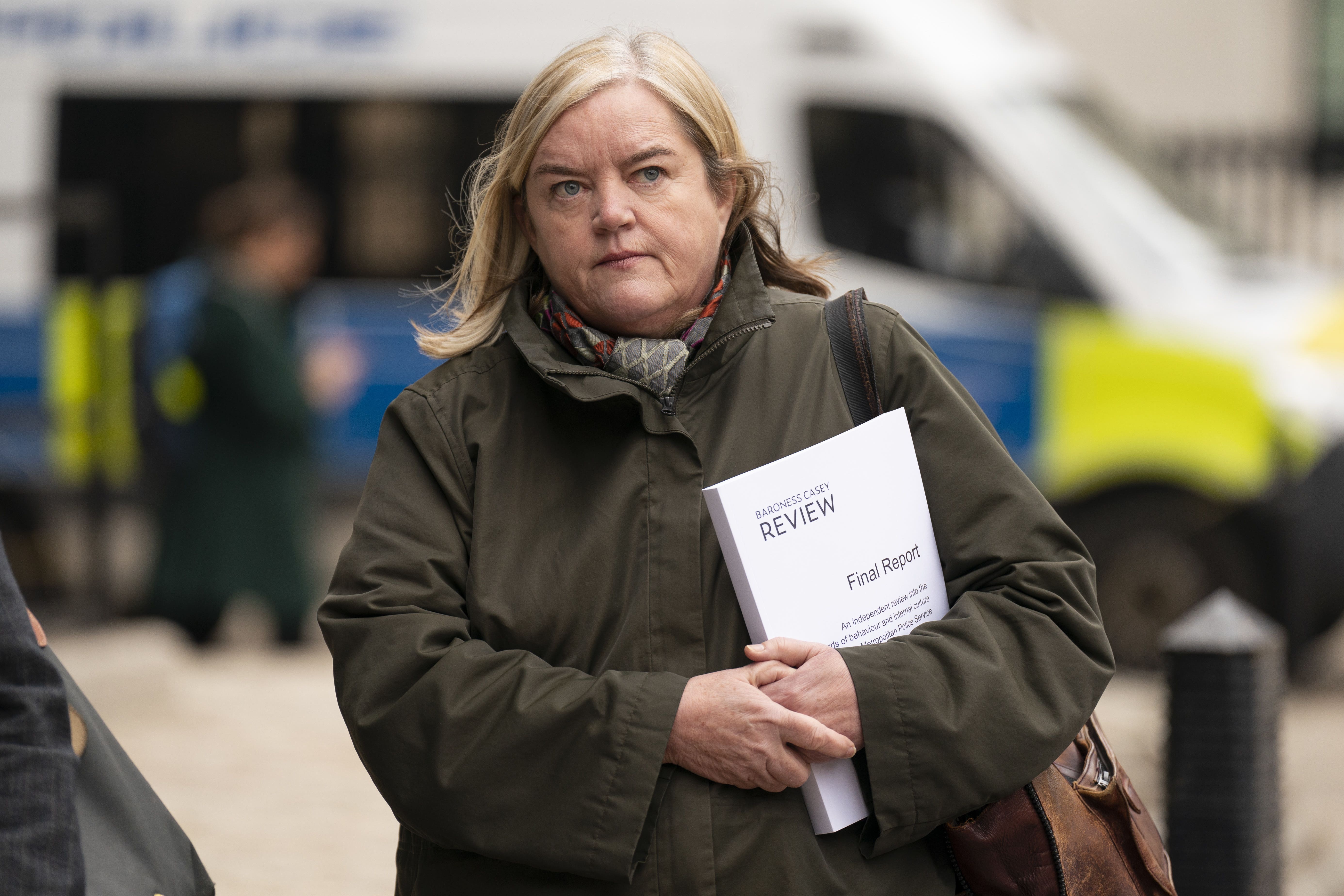‘Officers told to delete WhatsApp messages during internal campaign briefings’
An officer said the advice was given during briefings for the internal Not In My Met campaign, an initiative to drive out unacceptable behaviour.

Claims that Met officers were told to delete WhatsApp entries in the wake of scandals over disturbingly offensive messages are being examined by the force.
Officer G told the Baroness Casey review that teams were warned to check what they had posted on WhatsApp and Facebook in case they were investigated.
The officer said that the advice was given during briefings for the internal Not In My Met campaign, an initiative to drive out unacceptable behaviour.
(Oficer) G says she knows of colleagues in other locations who received the same message at their briefings
Baroness Casey’s report said: “G says that during the briefing she attended officers were encouraged to delete their WhatsApp messages.
“She says officers were told: ‘We don’t want more people handing their phones in, take a look at your WhatsApps and Facebook statuses and messages, look carefully, they’re coming for everyone now, protect yourselves.’
“G says she knows of colleagues in other locations who received the same message at their briefings.”
The Met has been hit by a series of messaging scandals, including grossly offensive material shared by officers based at Charing Cross police station between 2016 and 2018, much of which was too obscene to print.
Watchdog the Independent Office for Police Conduct took the unusual step of publishing the messages in full in February last year and said the behaviour it had uncovered was “disgraceful”.
There was also the “Bottles and Stoppers” WhatsApp group linked to murderer Wayne Couzens, the contents of which were so disturbing six officers, four of whom were from the Met, were found guilty of gross misconduct and either sacked or had already left their jobs.
Former Pcs Jonathon Cobban and Joel Borders were given a three-month jail sentence for sending grossly offensive messages on a public communications network, which they are currently appealing against.
Westminster Magistrates’ Court heard how they joked about raping a female colleague, talked about tasering children and people with disabilities, and displayed racist views in the group in 2019.
In a separate criminal case, former Met constables Deniz Jaffer and Jamie Lewis were jailed for two years and nine months each in December 2021 for sharing photographs of the bodies of two murdered sisters on WhatsApp.
The pair were supposed to be guarding the scene where Bibaa Henry, 46, and Nicole Smallman, 27, had been stabbed to death in a park in north west London, and shared the pictures for “a cheap thrill”, a court was told.
The Casey Review, published on Tuesday, found that officers in the armed unit MO19 were taught to type the word LANDSLIDE into WhatsApp, Signal or Telegram groups if they thought they might be compromised, so the contents could be deleted.
This is the code word used if an officer finds an explosive that looks as if it will detonate.
A spokesman for the Metropolitan Police said: “Those who came forward to provide evidence as part of this review were rightly provided with anonymity.
“We have asked Baroness Casey and her team to provide us with any available details, while respecting that anonymity, to allow us to look further into the serious specific issues raised.
“We have also made clear that should any of those people wish to raise issues with our Directorate of Professional Standards we will absolutely facilitate that.”
Bookmark popover
Removed from bookmarks